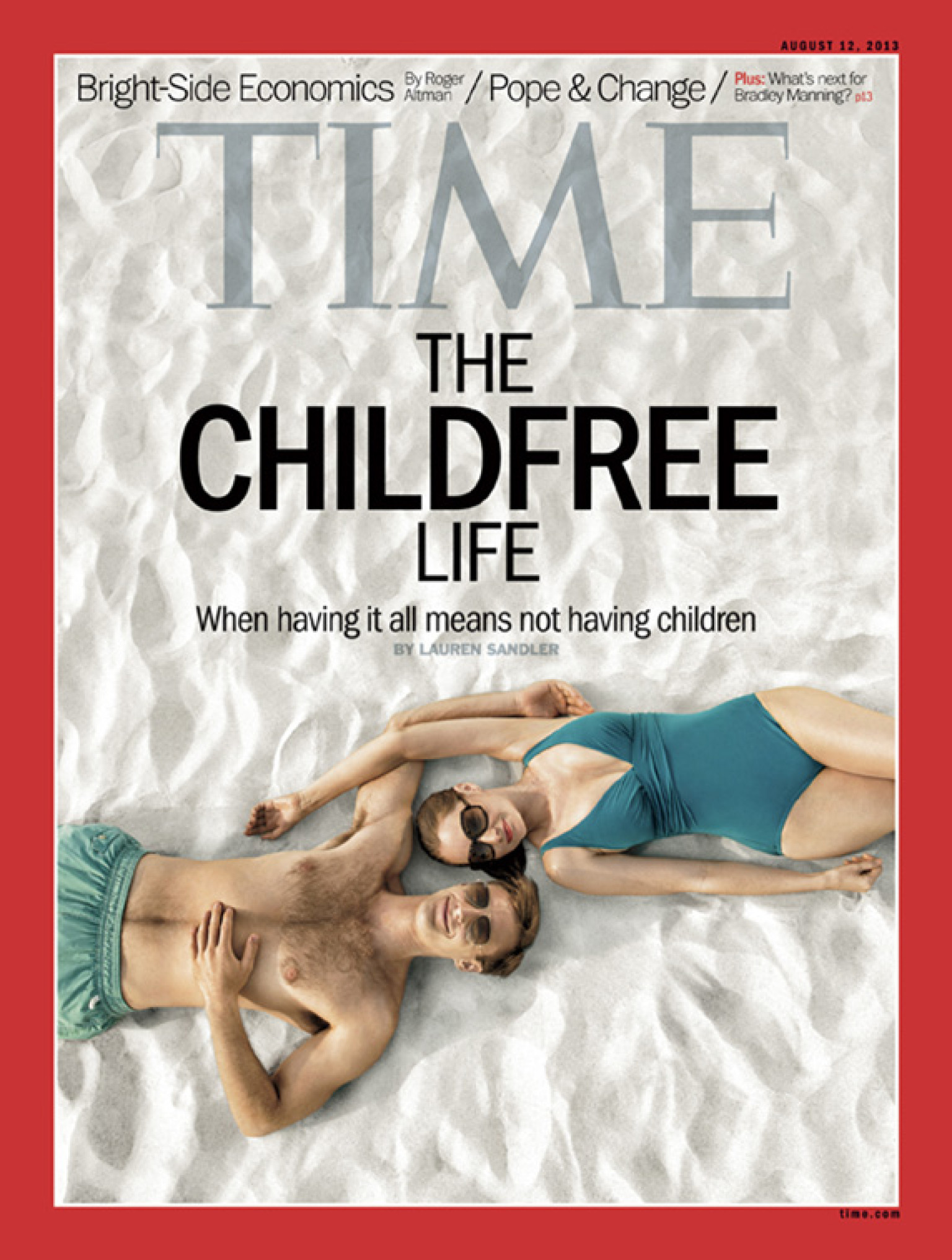For my entire life, I have never wanted children. I love children, I work with children, but I would hate to have children of my own. I recently learned that there is a significant population of people who feel the same as me who go by the term "childfree". Childfree people are different from childless people, as they choose to voluntarily never have children. The reasons for this differ from person to person, from having an abusive childhood, to disliking children, to not wanting to contribute to overpopulation, to feeling repulsed by the idea of pregnancy and childbirth, to not feeling financially secure, or simply just not having any maternal or paternal instincts.
Childfree individuals, and particularly women as they are stereotyped to have a biological need to bear children, have a difficult time explaining to others why they have no desire to reproduce. When I have told people that I would never want to have children, the reactions vary from a slight laugh and a promise that I would change my mind, to being accused of being a selfish person. I told a friend who comes from a country in West Africa about my desire to remain childfree and she laughed at me and said "You would never find a husband in my country".
In my research in childfree people, all studies, interviews, and articles come from developed, Western countries. I have found no information on childfree individuals in developing countries. Are there childfree people in developing countries? Yes. I'm sure there are. However, without any real research to examine, my guess would be that they face even more harassment and scrutiny because of their choices than a Westerner would. As we have seen in Playing with Fire, women are very pressured to have children. In many areas, including some here in the United States, women are expected to fulfill their social and gendered roles as mothers. But what if they don't want to? Do women, and men, get to say no and make their own reproductive choices?
I wish, and perhaps I could do this in the future, there was more research about childfree-ness in a non-Western context. Are there communities like there are here in the United States for those who often feel discriminated against because of their reproductive choices? Are women and men "in the closet", so to speak, and feel forced to bear children? These are all questions I wish could be answered. But for now, we will simply have to wait for research to emerge.
Childfree individuals, and particularly women as they are stereotyped to have a biological need to bear children, have a difficult time explaining to others why they have no desire to reproduce. When I have told people that I would never want to have children, the reactions vary from a slight laugh and a promise that I would change my mind, to being accused of being a selfish person. I told a friend who comes from a country in West Africa about my desire to remain childfree and she laughed at me and said "You would never find a husband in my country".
In my research in childfree people, all studies, interviews, and articles come from developed, Western countries. I have found no information on childfree individuals in developing countries. Are there childfree people in developing countries? Yes. I'm sure there are. However, without any real research to examine, my guess would be that they face even more harassment and scrutiny because of their choices than a Westerner would. As we have seen in Playing with Fire, women are very pressured to have children. In many areas, including some here in the United States, women are expected to fulfill their social and gendered roles as mothers. But what if they don't want to? Do women, and men, get to say no and make their own reproductive choices?
I wish, and perhaps I could do this in the future, there was more research about childfree-ness in a non-Western context. Are there communities like there are here in the United States for those who often feel discriminated against because of their reproductive choices? Are women and men "in the closet", so to speak, and feel forced to bear children? These are all questions I wish could be answered. But for now, we will simply have to wait for research to emerge.


Erin, I really liked your post! This is such an interesting concept when it comes to ‘childfree people’ and development.
ReplyDeleteThe pressure to have children, like we saw in Playing with Fire is extremely complex. So much of it has to do with tradition and the power structures that surround traditions. Also, if a woman's social destiny is connected to her biology that can quickly become problematic. The vary idea that having children is a choice could easily be nonexistent.
I am also thinking about the meaning of children. What do children mean? And how are such meaning tangled up in pressures to reproduce? Are children cultural territories?
I am sure many women and men in all counties feel cultural pressure to have children. I am now in my late 20's and I find it so interesting when people ask me, “so when do you want to have kids?" I want to respond with, "How do you even know I want children!" Currently, being a parent is not even on mind. Well some times I think about it and I really don't know if I will ever be a parent. Maybe I will, maybe I won't. Ultimately, I know that the choice is mine to make, but how do I tell people that without sounding rude? Communication about reproduction is hard. Reproduction connects to bodies and the cultures that surround bodies.